Adult bodies consist of 60% water, and this number can go up to 78% in young babies. The body loses water throughout the day through urine, sweat and breathing. As a result, dehydration can lead to many health issues, including headaches, dizziness, fainting, fatigue, constipation, urinary tract infections and muscle cramps. As the weather gets warmer, staying hydrated and replacing all the water we lose is essential.
Typically, it is recommended that adults and teenagers drink about eight glasses of water per day (8 glasses of 8oz each = 64 oz per day, or just over 2 liters). Smaller children and some people may need less, while some grown-ups may need even more. Some people may not be able to recognize or communicate if they are parched.
Elizabeth Sherwin, M.D., cardiologist and electrophysiologist, answers commonly asked questions to help caretakers keep their kids hydrated.
How much water does my child need?
The amount of water your child needs to drink each day depends on their age and health conditions; in general:
· 5- to 8-year-olds should drink at least five glasses of water a day (or > 40 oz per day).
· 9- to 12-year-olds should drink at least seven glasses of water a day (or > 56 oz per day).
· Children 13 and older should drink eight to 10 glasses a day (or > 64 oz per day).
A typical glass is 8 ounces.
How much water does my baby need?
Babies get all their hydration from breast milk or formula, so they do not need to drink water. However, if a baby is sick and is not eating, then it’s okay to give them Pedialyte or an electrolyte replacement liquids.
If you do want to give a baby water, it is safe to do so beginning around six months. Only give them about 4-8 ounces per day until they are a year old. Be aware, however, that giving young babies water can decrease their appetite and prevent them from getting the nutrients they need from breast milk or formula. Please check with your child’s primary care provider before giving your baby any water, and remember, always mix formula according to the package instructions! Making formula “last longer” by adding more water than recommended can lead to water intoxication or poor weight gain.
Getting your kids to drink enough water
It’s important to make sure your child drinks water before they are really thirsty. If kids feel thirsty, it means they are probably already dehydrated; they need to drink before that happens.
The best way to keep your child hydrated is by getting them used to drinking lots of water consistently throughout the day and making sure water — and not sugary juices or sodas — is their primary drink. You can model this behavior by consuming a lot of water yourself. If your kids do not like drinking water because it does not taste good to them, try flavored water or electrolyte drinks. Tap water is fine and may have additional benefits, such as fluoride to protect teeth, but be sure to check with your community water source as some neighborhoods have lead pipes.
For younger kids, it’s also important to think about what they are drinking with meals. Milk and water should be their primary beverages. Fill their sippy cups with water — it’s better for their teeth. If you do give them juice, dilute it with water.
For older kids, a larger and refillable water bottle that they can carry with them can make hydration easier. Make it a game to see how many times they can drink the contents of the bottle and refill it during the day. There are even water bottles now that light up to remind you to drink!
If you know your child is going to have a particularly active or busy day, you can add some extra hydration to their breakfast by serving cereal with milk or fuel them up at dinner the night before with soup or popsicles. Many fruits and vegetables — such as watermelon and celery — are also excellent sources of water.
Drinking enough water is one of the best things your kids can do to keep their bodies healthy!
Is there such a thing as too much water?
Drinking too much water can be dangerous, though for most people, this is very hard to do and is related to extreme water intake. Over-hydration occurs when someone drinks too much water, which affects the electrolytes in the body. Overhydration can lead to water toxicity/poisoning: the body’s water volume becomes too large for the kidneys to handle, which can cause the electrolytes in the body to dilute. When sodium (salt) becomes too diluted, this “hyponatremia” is the primary concern and causes fluids to move inside your cells, leading to inflammation and other symptoms, even death.
This is also the case for babies. Babies under six months of age who get too much water can develop a rare but serious condition called “water intoxication.” This condition can cause seizures. The safest thing to do is to give your baby only breast milk/formula until advised otherwise by a pediatrician.
How can I tell if my non-verbal child is thirsty?
For children who may not be able to communicate their thirst, monitoring water intake, urine frequency and color, and boosting good drinking habits are vital for healthy summer fun.
How do I know if my child is drinking enough water?
One good way to know if your child is drinking enough water is to look at their urine. It should be light yellow to clear like water; if it is dark yellow or orange, this is a sign of dehydration. In fact, no matter how old you are, the color of your urine is a great way of knowing if you’re drinking enough water.
If a child is very thirsty, they are already dehydrated. Dehydration occurs when there is not enough fluid in the body to maintain regular function. Children and babies are at greater risk of dehydration than adults, so keeping them hydrated is always important, especially in elevated temperatures. If they seem very thirsty all the time, please see your doctor to consider other reasons as well.
Symptoms of mild dehydration include dizziness, nausea, headaches, dark urine and dry lips, tongue, mouth or throat. The best treatment for mild dehydration is to give your child more fluid to drink, such as water or oral rehydration solutions. Drinks high in electrolytes are also helpful.
If your child has severe dehydration, symptoms include extreme thirst (chugging water as soon as its given), tiredness, paleness, sunken eyes, lack of urination, lack of tears when crying, feeling cold to the touch, irritability, drowsiness or confusion or excessive breathing. These are nonspecific signs that indicate your child should be evaluated by a medical professional as soon as possible.
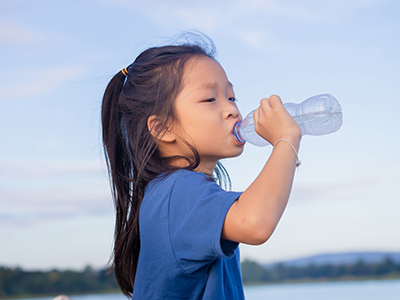 https://riseandshine.childrensnational.org/wp-content/uploads/2023/08/girl-drinking-water-feature.png
300
400
Rise and Shine
https://riseandshine.childrensnational.org/wp-content/uploads/2017/11/childrens_riseandshine_logo.jpg
Rise and Shine2023-08-09 16:00:442023-08-09 16:06:00How much water does my child need?
https://riseandshine.childrensnational.org/wp-content/uploads/2023/08/girl-drinking-water-feature.png
300
400
Rise and Shine
https://riseandshine.childrensnational.org/wp-content/uploads/2017/11/childrens_riseandshine_logo.jpg
Rise and Shine2023-08-09 16:00:442023-08-09 16:06:00How much water does my child need?




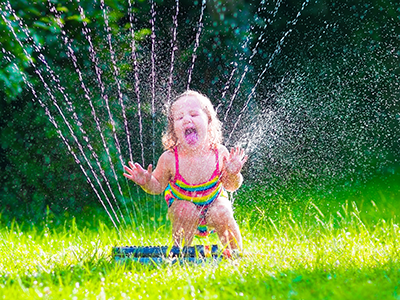
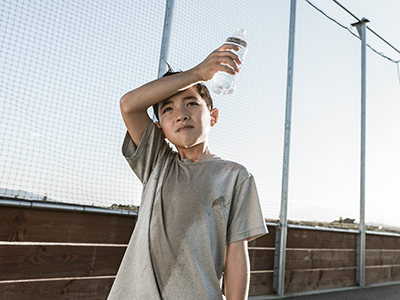
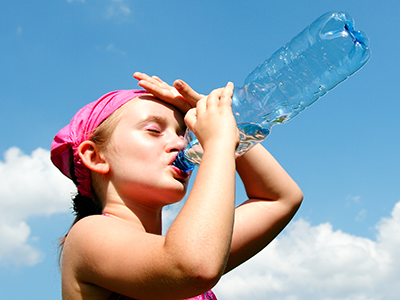
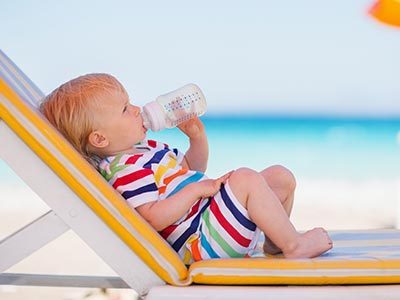
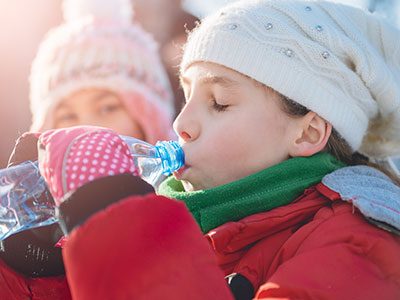

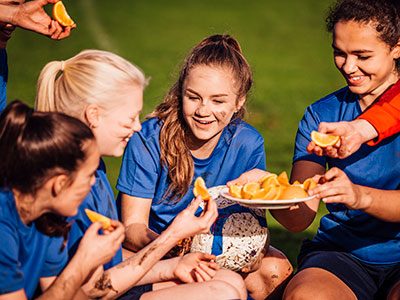
Leave a Comment
Want to join the discussion?Feel free to contribute!